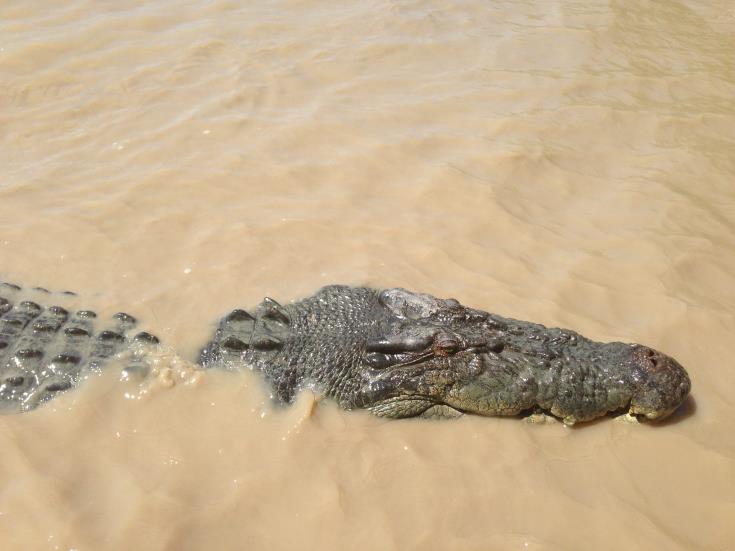In a letter to the Ministers of Interior and Agriculture, Rural Development and Environment, the Environment Commissioner Ioanna Panagiotou submitted for the second time (the first concerned the creation of a crocodile park in Psematismenos) her views on the creation of a monocotyledon crocodile park in Das.
According to the Commissioner, the species Crocodylus niloticus, a Nile crocodile, is protected and as a state we have a Community responsibility to protect it.
In addition, in her letter she points out the following points:
This reptile is foreign to the fauna of our place for which we have a Community responsibility to protect it. The issue concerns our obligation to preserve the biodiversity of Cyprus.
In Cyprus there is no know-how and expertise for the management of large reptiles. I have serious reservations as to whether those called upon to monitor the proper functioning of development will be able to ensure the well-being and rational living of reptiles living in a confined technical environment, in a country with different climatic conditions from the country of origin or / and their origin.
This is a park whose economic viability depends on traffic, a fact that must be carefully considered because Cyprus is a small country with flexibility in terms of tourism.
This begs the question of what the State will answer in the event of a future new request from this company to expand its activities by setting up a kennel / slaughterhouse, citing reasons of economic viability, given that it has already invested huge sums. The State (taking into account the amount of the existing investment) is expected to respond positively again and Cyprus will again be in a negative balance in the cost-benefit scale, taking into account our European obligations and the potential risks of safety, health, environment, social acceptance. etc. reports.
According to an announcement from the Office of the Commissioner, Ms. Panagiotou notes that the development involves safety risks in the event of an accident (eg escape of reptiles, etc.). In Israel in 2012 70 crocodiles escaped.
He adds that crocodiles feed on offal and other animal products, which requires serious and continuous monitoring to avoid problems related to public health and the health of the reptiles themselves.
In her opinion, the management of liquid and solid waste as well as the issue of causing nuisance by bad smells will be problematic.
"Also, very large quantities of water are needed for the implementation and operation of the development. In Cyprus we all know that the issue of proper management of water resources in the era of climate change requires the implementation of a strict strategy since based on data from the Department of Water Development they have almost emptied and / or salinized to a large extent the underground water reserves. Water is the most valuable natural resource of the place and its mood must be reasonable ".
He notes that since there are no national or Community standards governing the breeding of crocodiles, the Minister of Agriculture will have to issue a decree which will be referred to as "the facilities they keep to display Crocodylia animals to the public". The purpose of the decree will be the terms and conditions for the issuance of an operating license by the Veterinary Services, after the completion of the project. He considers the project "bold" on the part of the Council of Ministers, which assumes such a responsibility for such a specific development, when there are no national or Community standards governing the breeding of crocodiles and there is not the necessary know-how on the part of departments and officials.
The non-consent of a large group of area residents should be taken into account. He believes that, since this is not a project of public interest but a project of a private company (although I understand the need for investment and capital inflow) the State must put higher in its priorities the quality of life of its citizens.
Regarding the potential risks to public health, he encloses an Information Note received from a scientific team of the Medical School of the University of Nicosia, which they prepared based on the international literature. West Nile (WNV) crocodile and alligator infections have been documented in the scientific literature since 2003, when a study showed a high rate of WNV infection in crocodiles in Israel, the country from which crocodiles will be introduced. park.
Having in mind all the above, the cost-benefit balance leans towards the cost side (from economic, social and environmental point of view) the Commissioner for Environment submitted in writing her opposition to the creation of such a project in Cyprus.
In her view, projects that reasonably create insecurity for the residents of an area and for which the State does not have all the necessary infrastructure and know-how in order to be able to successfully deal with any possible future problems that must be avoided, he concludes.
Source: KYPE
